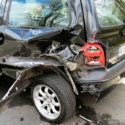Can you sue a trucking company after an accident involving one of its trucks? The answer to this question depends on a number of factors, including the nature of the incident, the relationship between the truck driver and the owner of the company, and the severity of the harm you suffer from the collision.
The law in this area can be complex, and every truck accident case is different. That’s why the assistance of an experienced Mobile truck accident lawyer is essential in matters like this.
When Can You Sue a Trucking Company After an Accident?
Companies providing commercial trucking services have a duty to ensure that the vehicles they put on the road do not endanger other drivers, pedestrians, or cyclists. If they breach this duty and cause you harm in the process, you may have the right to expect compensation from them.
There are a number of ways in which a trucking company might breach its duty of care and, in doing so, cause an accident. These include:
- Failure to vet a driver’s qualifications and experience
- Failure to properly train or supervise a driver
- Failure to conduct proper maintenance on a vehicle
- Violation of federal or state trucking regulations, such as by exceeding weight limits or failing to comply with hours-of-service regulations
- Improper loading or securing of cargo
- Falsifying log books or other records related to the operation of the truck
- Failure to properly plan routes, leading to the driver’s being fatigued or forced to drive in adverse weather conditions
- Failure to track vehicles using GPS or other methods
Additionally, the doctrine of vicarious liability allows plaintiffs to sue commercial trucking companies in cases where crashes occur solely because of driver negligence. Alabama law holds that employers are responsible for the actions of their staff where those actions are part of the duties of their employment.
When Is the Truck Driver at Fault?
It may be the case that the trucking company discharged its duty of care to you in relation to the collision you suffered, but the driver of the truck did not. In such a situation, it is possible to sue the driver rather than their employer. Acts or omissions by a driver that could give rise to a lawsuit in this scenario include:
- Failing to properly check for traffic and other hazards before making lane changes or turns
- Exceeding speed limits or driving too fast for road conditions
- Failing to signal when turning or changing lanes
- Failing to obey traffic laws and signals
- Driving under the influence of drugs or alcohol
- Using a cell phone or other electronic device while driving
- Failing to properly maintain or inspect the vehicle, leading to mechanical failure or equipment malfunction
- Driving fatigued
- Failing to properly secure cargo, leading to the spillage of dangerous materials or a shifting load
In some jurisdictions, it is not possible to sue a commercial truck driver if they get in an accident at work; the defendant must be the trucking company, regardless of how the crash happened. However, Alabama’s law does allow you to sue the driver in this scenario.
It may also be possible to file a product liability lawsuit against the manufacturer of a truck if the evidence suggests some defect in the design or construction of the vehicle, or a lack of adequate warnings about potential hazards, caused an accident.
How Is Fault in a Truck Accident Determined?
As you can see from the points above, the key detail when considering whom to sue following a trucking accident revolves around who was at fault for the accident. So, it’s important to understand the process that determines this.
For a defendant to be liable in an Alabama commercial truck accident case, the plaintiff’s lawyer must prove there was negligence on their part. There are four distinct elements required to prove negligence, namely:
- Duty of care: The defendant must have a legal duty to exercise reasonable care to prevent harm to others. For example, a trucking company must maintain their vehicles to proper standards and train their drivers to operate safely on the roads.
- Breach of the duty of care: The defendant must have failed to meet their duty of care by acting in a way that falls below the standard of care a reasonable person would have taken in similar circumstances. For example, a truck driver who exceeds speed limits would be in breach of their duty of care.
- Causation: The defendant’s breach of duty was the actual and proximate cause of the plaintiff’s injuries. This means the accident would not have occurred if the defendant had not breached their duty of care.
- Damages: The plaintiff suffered actual damages, such as medical expenses, lost wages, and pain and suffering, as a result of the defendant’s breach of duty.
Of these requirements, causation is the one that tends to be most complex. Defending attorneys will use all available evidence to attempt to establish that any party other than their client was responsible for an accident.
Alabama uses the doctrine of contributory negligence, which means that if you, as a plaintiff, are found to have contributed to the accident in any way, you will not be entitled to any damages. This strict rule applies even if your contribution to the accident was relatively minor compared to the defendant’s.
These rules can complicate seemingly straightforward cases, often leaving badly injured plaintiffs without compensation. That’s why hiring a truck accident attorney following an Alabama truck crash is so important.
Can There Be Multiple Defendants in Alabama Truck Accident Cases?
It’s always possible that more than one party failed to uphold their duty of care to you as a road user. It may be the case that the driver of an improperly maintained or poorly constructed truck collided with you while driving carelessly. In such a situation, it may be a good idea to file suit against multiple defendants simultaneously, depending on the advice of your attorney.
If a court finds that more than one defendant is liable for damages in your case, you may decide which one to recover these damages from. Plaintiffs often seek to collect the value of a judgment from the defendant with the most comprehensive insurance coverage. If one defendant pays a greater share of the damages than other liable parties, they can attempt to recover the difference later. This is known as the doctrine of joint and several liability.
The Role of Insurance Coverage in Alabama Trucking Accidents
Commercial truck drivers in Alabama must have a minimum level of motor insurance coverage under state law. Their policies must cover at least $25,000 for each person injured in an accident, $50,000 for all people injured, and $25,000 for property damage.
There are separate requirements for commercial trucks that cross state lines, as set out by the Federal Motor Carrier Safety Administration (FMCSA). The minimum level of coverage depends on the size of the truck, the number of passengers it carries, the nature of its cargo, and whether the vehicle carries goods across state lines.
Alabama is a “fault” state, which means that the insurance company of the party at fault for an accident is liable to pay compensation for all those who incurred expenses because of the incident. If you get in an accident with an insured vehicle and are able to establish that the other party was at fault, their insurer is legally required to compensate you.
The baseline requirements under state and federal law may not cover all the damages sustained in an accident, however. If you’re seeking damages over and above what an insurance company is obliged to pay, you may need to file suit against the party at fault to recover the excess amount. Issues may arise if the defendant does not have sufficient assets to pay you without going bankrupt.
Your attorney can help you to judge your settlement demands based on the policy limits of the party against which you’re filing a lawsuit.
How an Alabama Truck Accident Attorney Can Help You
Trucking accidents are frequently devastating events that leave victims with lasting, debilitating injuries along with major property damage. In order to recover financially from an incident like this, you’ll need to consult with an attorney who specializes in the field.
Our lawyers work on cases of this nature every day, helping truck accident victims recover the compensation they need. We’ll analyze the evidence, negotiate on your behalf, and fight in your corner in the courtroom if necessary.
Contact us today to speak with one of our trucking accident attorneys. You can reach us by phone on (251) 444-7000 or via the contact form on our website. We’ll even provide your initial case consultation for free.



